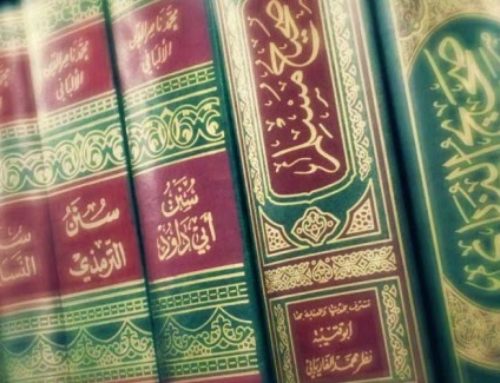Translated by Javed Iqbal
(Translator’s Note: The following translation is of an Arabic piece by Hakim al-Ummah Mawlana Ashraf Ali Thanawi, may Allah have mercy on him, in which he has succinctly laid out the various objectives behind debating and pointed out the harms in each case. It provides a profound, insightful analysis of the debate culture which is in vogue more than ever before, concluding that such debates are of no benefit, rather they are harmful.)
Debating, with respect to its objective, is of a few types. This is because the objective is either:
(i) To make evident what is right, even if the opponent does not go quiet, in which case the debater will not concern himself with silencing him. In fact, when he sees stubbornness in him, he says: “For us are our deeds, and for you, your deeds. There is no argumentation between us and you. Allah will bring us together.” [1]Qur’an, 42:15 The Qur’an is filled with this type of debate and also calls towards it. Allah Most High says: “And if they dispute with you, say (to them), ‘Allah is best aware of what you do.’” [2]Qur’an, 22:68 I have named this beneficial point: Aversion to the Accustomed Manner of Debating (Al-Munafarah ‘an Muta’araf al-Munazarah). This type is definitely praiseworthy, but it is non-existent in this era, except in very rare circumstances, which is essentially the same as non-existent. [3]Hakim al-Ummah says, “The way debates are conducted today is not from the way of the predecessors (salaf). The Qur’an debates with the disbelievers in many places, but its style is amazing. It is … Continue reading
(ii) To silence the opponent, and this is also praiseworthy – provided the intention is good. [4]Hakim al-Ummah says: “In today’s era, debating is extremely harmful, because it has no praiseworthy objective behind it. The objective is predominantly to disgrace the opponent and show one’s … Continue reading However, this is dependent on the opponent becoming silent; if he is stubborn or a troublemaker and does not have any shame, he will not be quiet. Thus, intending this objective is to intend something one has no power to achieve independently. One who has power through someone else’s power is not powerful [in reality]. Thus, this is something non-volitional, and to intend a non-volitional matter is futile and tiresome. Hence, this cannot be an objective.
(iii) To silence the opponent and then this is actually achieved. However, because becoming silenced is not proof that this person who is totally silenced is wrong, this is also futile. In fact, it is harmful, because it suggests in the eyes of laymen that the one who has gone quiet is wrong. Hence, if such silence occurs at times from the people of truth, due to the opponent being more eloquent in expressing his evidence, laymen will take this as proof of their being wrong also. This is extremely harmful. [5]Hakim al-Ummah says: “On the day of the debate in Muradabad, there was so much noise about the debate that even the Hindus were saying, ‘Let’s go to the Shahi Mosque to see the molvis … Continue reading
(iv) To inform the people of the arguments of the opponents, to establish the truth and falsify the false: This is a form of arbitration, so how can an ignorant person be an arbitrator? Therefore, this is also futile. In fact, it is harmful, as one is essentially saying through one’s action that ignorant people are capable of arbitrating. The harm of this is evident. If they seek a scholar as an arbitrator, the general habit, rather the definite habit, is that he will already believe in either side of the issue, in which case, how can one be sure that his fairness will supersede his own [preconceived] belief? Hence, this is also futile.
Thus, it has become very clear that the accustomed manner of debating in our times is totally void of any benefit, even if nobody agrees with us in this regard. [6]Hakim al-Ummah says: “With all these harms, even a praiseworthy act becomes prohibited, let alone when it is blameworthy in itself due to the conditions not being met.” (Huquq al-‘Ilm, pg 79).
But if someone asks: How will a seeker of the truth, in particular one who is confused, be guided? We say the path to this is that which is common throughout the Qur’an, namely that the truth is to be explained time and time again under different headings. [7]Hakim al-Ummah says: “Debates promote the people of falsehood even more and they have no positive result. However, to break the influence of the people of falsehood, explaining the truth and … Continue reading This is as Prophet Nuh (upon him be peace) said: “My Lord, I have called my people night and day…Then I called them loudly, and then I spoke to them in public and spoke to them in private.” [8]Qur’an, 71:5,8-9
This is what Allah Most High indicated to, saying: “Surely, We have explained things in various ways in this Qur’an, so that they may pay heed to the advice.” [9]Qur’an, 17:41
So, have conviction in this and know it well.
18 Rabi al-Thani 1351AH
(Bawadir al-Nawadir, vol 2, pg 468)
| ↑1 | Qur’an, 42:15 |
|---|---|
| ↑2 | Qur’an, 22:68 |
| ↑3 | Hakim al-Ummah says, “The way debates are conducted today is not from the way of the predecessors (salaf). The Qur’an debates with the disbelievers in many places, but its style is amazing. It is nothing like the noisy quarrels of today.” (Al-Tabligh, vol 21 pg 123) |
| ↑4 | Hakim al-Ummah says: “In today’s era, debating is extremely harmful, because it has no praiseworthy objective behind it. The objective is predominantly to disgrace the opponent and show one’s own point to be superior. The objective is not to establish the truth.” (Anfas-i-‘Isa, vol 2, pg 62). |
| ↑5 | Hakim al-Ummah says: “On the day of the debate in Muradabad, there was so much noise about the debate that even the Hindus were saying, ‘Let’s go to the Shahi Mosque to see the molvis fighting.’ How shameful! La ilaha illa’Allah. There is such disgrace in these debates. Mawlana Muhammad Qasim (may Allah have mercy on him) also despised this greatly. He would never debate Muslims. Yes, he would debate non-Muslims.” (Husn al-Aziz, vol 1, pg 461). |
| ↑6 | Hakim al-Ummah says: “With all these harms, even a praiseworthy act becomes prohibited, let alone when it is blameworthy in itself due to the conditions not being met.” (Huquq al-‘Ilm, pg 79). |
| ↑7 | Hakim al-Ummah says: “Debates promote the people of falsehood even more and they have no positive result. However, to break the influence of the people of falsehood, explaining the truth and spreading it repeatedly and in different places is undoubtedly very beneficial. (Anfas-i-‘Isa, vol 2, pg 590). He also says, “What one should do is that when the people of falsehood prattle, one should make one’s point separately. This is a much better method. This is the way of the prophets. They would not be so concerned with answering the disbelievers. They would however repeat the truth constantly, and not bother too much with giving answers.” (Kalimat al-Haqq, pg 102). Elsewhere he said, “In today’s era, debating non-Muslims is generally harmful. The beneficial method is to deliver talks. I delivered a talk which is entitled ‘Mahasin al-Islam’. It has been published and is worth reading.” (Kalimat al-Haqq, pg 65) |
| ↑8 | Qur’an, 71:5,8-9 |
| ↑9 | Qur’an, 17:41 |






